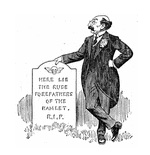
Why the Murray Project Failed
THE AMERICAN WAR AGAINST VESTIGIAL MEDIEVALISM
John Courtney Murray (1904-1967) was a Jesuit priest, editor, and theorist who became famous for penning a crucial draft of Dignitatis Humanae, Vatican II’s “Declaration on Religious Liberty,” and a book called We Hold These Truths (1960), in which he posited an essential complementarity between American founding principles and the realist natural-law tradition. He discerned in the Declaration of Independence and Lincoln’s Gettysburg Address four key principles: (1) God is sovereign, (2) governmental power is legitimized by the consent of the governed, (3) social community is ontologically prior to the State, and (4) freedom is inseparable from virtue. Another defining characteristic of Murray’s viewpoint was his belief in the crucial importance of public theology as a means of invigorating the American experiment so that government of, by, and for the people would not perish from the earth.
Hence, many spoke of a “Murray project.”
Given that our Founding Fathers were either Masons, like George Washington, or deists, like Thomas Jefferson (i.e., people for whom the entire concept of “salvation” was bizarre), given that our Puritan concept of ordered liberty gave way extraordinarily quickly to the trans-Allegheny West’s exaltation of negative liberty (no fences), and given that the classical liberalism that held sway in 1776 assumes a kind of neutrality that precludes, much less undermines, Murray’s third principle about the ontological superiority of pre-political commitments, the odds for the success of his project were never good.
Yet, I have always wanted it to succeed. And I now mourn its passing in the face of new, incontrovertible evidence — the Supreme Court’s Obergefell decision, the intolerance that is now directed toward people who depart from party lines to think for themselves, and the increasing diminishment of religious liberty — that the Murray project, as originally structured, has failed. For there was much in it that was good. Murray’s appreciation for American constitutional law and his willingness to risk his own standing among the princes of the Church by proposing, as he did, that pluralism can itself be an occasion for the discovery of permanent truths is heartening. Furthermore, who could not get behind an attempt to reconcile the brightly colored, infinitely valuable medieval inheritance with American founding principles?
You May Also Enjoy
A Disturbing Demotion... Investigating a Killer’s Conversion... Serving & Stealing... A Large-Enough Loophole... Is CRT an S-I-N?... Survival in a Fool’s Paradise
Kierkegaard’s concept of “the Apostle” influenced Percy’s presentation of character and theological insight in his fiction.
Fundamentalism is unable to withstand intellectual challenges from within or without. It has no real theology, no coherent authority, and no unity.

